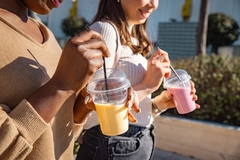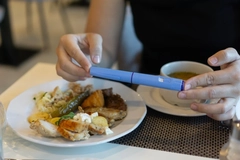
- Industry news
Industry news
- Category news
Category news
- Reports
- Key trends
- Multimedia
- Journal
- Events
- Suppliers
- Home
- Industry news
Industry news
- Category news
Category news
- Reports
- Key trends
- Multimedia
- Events
- Suppliers
BlueTree secures EU approval for clean label sugar reduction system
Food tech firm BlueTree Technologies has received regulatory clearance to market its sugar-reduction system for fruit juices across the EU without prior approval — marking a regulatory breakthrough for the company.
Following a comprehensive legal and scientific assessment, legal advisory firm Rödl & Partner confirmed the filtration-based technology does not fall under the EU’s “novel food” classification as defined by EU Regulation (EU) 2015/2283. This paves the way for wider adoption of beverages processed using BlueTree’s sugar reduction technology across Europe.
CEO Michael Gordon tells Food Ingredients First that the company is “deeply aligned with both the World Health Organisation’s (WHO) sugar reduction targets and consumer demand for clean label, minimally processed products.”
The WHO recommends reducing free sugars (monosaccharides and disaccharides), such as those found in fruit juices and concentrates, to less than 10% of daily caloric intake. This is driving industry-wide change, with juices and nectars leading sugar-reduced claims at 7% between Oct 2023-Sep 2024, indicates Innova Market Insights.
“Our approach is clean label by design. We don’t add or substitute anything. We simply remove naturally occurring sugar from the original natural beverage, whether that is fruit juice or dairy, without altering or adding anything,” says Gordon.
The WHO considers these sugars as free sugars, which are the same sugars contained in any other beverage. “That’s a major differentiator. By preserving all the natural components of the juice, we help brands meet growing consumer demand for transparency, simplicity, and truly natural products, while still addressing public health goals.”
Once the updated fruit juice regulations are effective, beverages produced using BlueTree’s process that meet the criteria may be eligible to carry the legal designation of “reduced-sugar fruit juice.”
The technology enables producers to meet the 30% reduction threshold required to carry the label, while maintaining “full regulatory compliance and clean label status,” says Gordon.
“Selective” sugar removal
Blue Tree’s selective sugar removal solution is FDA-approved and a patented physical separation technology that combines multiple techniques to remove specific sugar molecules from natural drinks like juices and milk. It does so while preserving essential nutrients, natural sweetness, texture, and taste in beverages, claims the Israel-based company.
 Blue Tree’s patented filtration process removes mainly double sugars from juice without additives, says CEO Michael Gordon.Gordon explains that the “unique” method selectively removes mainly double sugars from juice “without relying on any additives.”
Blue Tree’s patented filtration process removes mainly double sugars from juice without additives, says CEO Michael Gordon.Gordon explains that the “unique” method selectively removes mainly double sugars from juice “without relying on any additives.”
“It specifically targets and extracts disaccharides, which are sugars made up of two linked simple sugar molecules, like sucrose (table sugar).”
“These types of sugars contribute most to the overall sugar content in juice. By removing them, we significantly reduce the sugar level while preserving the full matrix of nutrients and natural flavors.”
Since the process is entirely mechanical, it helps preserve the juice’s complete nutritional profile, including vitamins, minerals, fibers, and its authentic taste.
Eyeing industrial scale-up
BlueTree is actively working with European beverage manufacturers to scale its sugar removal technique and promote healthier, natural beverages.
“The recent regulatory clearance has opened many doors. We’ve seen increased interest from additional brands, and we’re moving quickly to get those partnerships into motion,” Gordon tells us.
“What’s exciting is that these collaborations aren’t just about reducing sugar; they’re about doing it in a way that keeps everything clean label, natural, and fully compliant. And more importantly, they demonstrate how our technology can scale up in a real, industrial setting and deliver real value right where it matters, on the shelf, in front of the consumer.”
While the company’s short-term focus is on scaling and refining its current process across various fruit juices, it is already developing applications for dairy and beer, reveals Gordon.
“The core technology is highly adaptable, and we’re exploring its potential in other liquid food systems where sugar content is a concern.”
“Our broader vision is to become a platform for natural sugar reduction across the entire natural beverage industry, helping brands and consumers make healthier choices without compromising taste or quality,” he concludes.



















